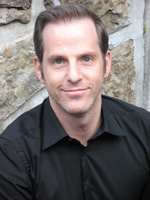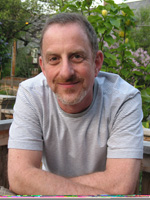Extra special thanks to Ian and Joel Gold for returning to SBAD to answer 5 new questions about their featured book – Suspicious Minds: How Culture Shapes Madness. The book is being re-released with a new forward by Susannah Cahalan, author of Brain On Fire who reviewed the book for the New York Post.
Here is a link to our first interview with Ian and Joel.
Ian Gold is the Canada Research Chair in Philosophy and Psychiatry at McGill University. He earned a BA and MA in philosophy from McGill University and a PhD in philosophy from Princeton University. – Adapted from Simon & Schuster Canada
Joel Gold is Clinical Associate Professor of Psychiatry at New York University School of Medicine. He evaluates and treats adults in his private practice in Manhattan. Dr. Gold practices both psychotherapy and medication management. – Adapted from Joel’s Homepage
Joel’s Homepage: http://www.joelgold.md
Ian & Joel’s Twitter: https://twitter.com/ThinkVsShrink
#1 – Your book is being released with a forward by Susannah Cahalan, someone who had been diagnosed with Truman Show Delusion. How did she come to be writing the forward for the book? How did her personal experience influence her ideas about the book?
I should begin by clarifying. Susannah was not diagnosed with Truman Show Delusion. She suffered from anti-NMDA receptor encephalitis, as documented in her book Brain On Fire. It was only retrospectively that both she and I recognized that one symptom of the psychosis she suffered as a result of the encephalitis was TSD. Of course, I cannot speak for Susannah, but from her writing about and for the book, and in talks we’ve had, I think the fact that she experienced such a clearly “biological” psychosis, if you will, shaped the way she read our book. I think that coming at psychosis from a biological perspective, Susannah found the evidence supporting environmental factors in psychosis surprisingly compelling, though I believe she still considers herself toward the biological end of the spectrum.
#2 – You have come across many cases of the Truman Show Delusion in Suspicious Minds. How does this delusion affect family members? How do they deal with it?
Delusions are quite common. In the book we write about people with delusions of all types: persecutory, grandiose, religious, etc. We’ve heard from or about many people with Truman Show delusion from around the world, particularly since the release of the book. Ultimately, we came to believe that it is a kind of delusion of being controlled. We hear from family members as well. It’s a tragic aspect of psychotic illness because family members know what’s going on in a way that patients can’t. They understand the full extent of the illness. On top of that, they are often faced with the agony of not being allowed (by their loved one) to help because the patient doesn’t believe he or she is sick.
#3 – How do people react when diagnosed with Truman Show Delusion? What is their prognosis?
Again, people who are delusional by definition do not think that what they believe is untrue and are usually upset when others confront them repeatedly about their delusions. Truman Show delusion is no different. I would not tell someone they had TSD. For one, it’s not a diagnosis in and of itself. More importantly, the name of the condition is of little importance. The symptoms and suffering that patient might be experiencing and the impact the delusion has on his life should be the areas of focus.
#4 – The first edition came out in July 2014. What has the response to the book been? How have people taken to the idea of Truman Show Delusion?
The book was well-received critically. It remains to be seen if the theory we offer about the formation of delusions, i.e. the existence of a suspicion system gone awry, is more fully embraced by the scientific community. We are aware of some new research people are doing that explores more narrow aspects of our theory. As for TSD itself, it seems clear that the delusion is more common than I had originally anticipated it would be. However, there are critics who think that the specifics of the delusion are not theoretically or clinically relevant. We, of course, disagree.
#5 – Are you working on any new projects/books you can tell us about?
We are working on a couple of proposals just now. One book will explore the ways in which the suspicion system may influence our daily lives, even when not significantly disordered. The other is a book that addresses culturally-specific delusions from around the world.


Reblogged this on My Blog News.